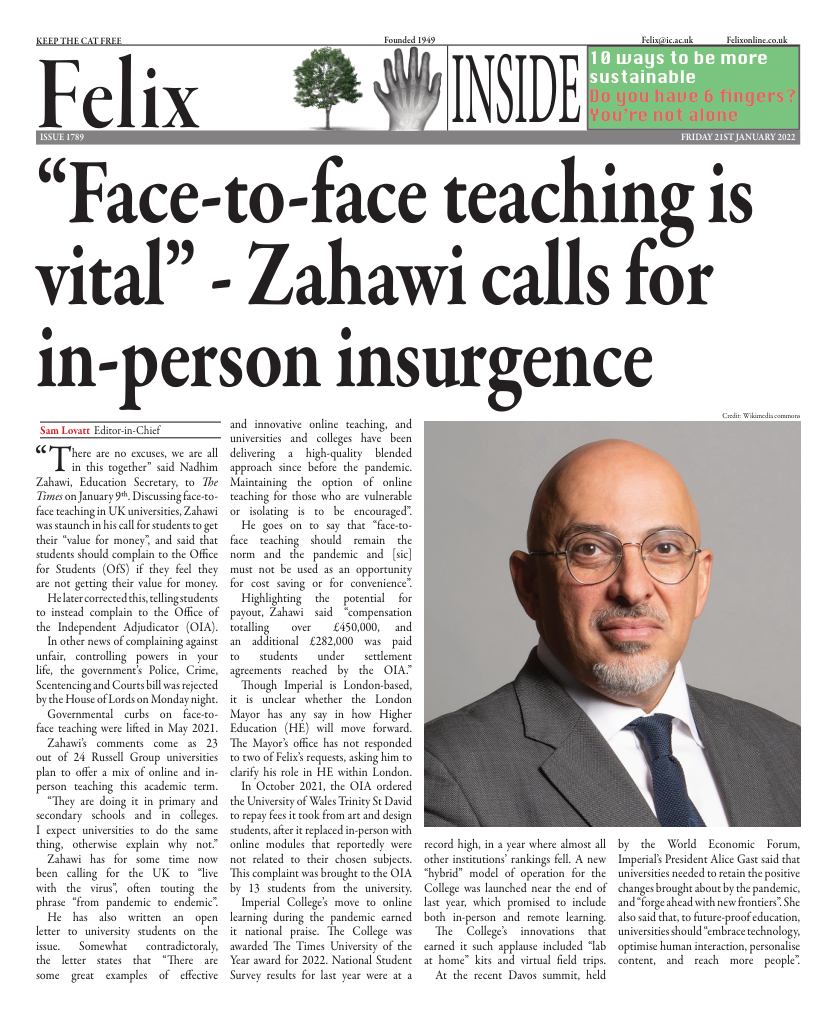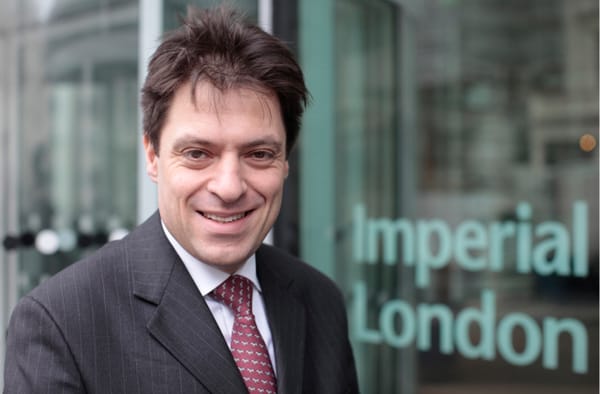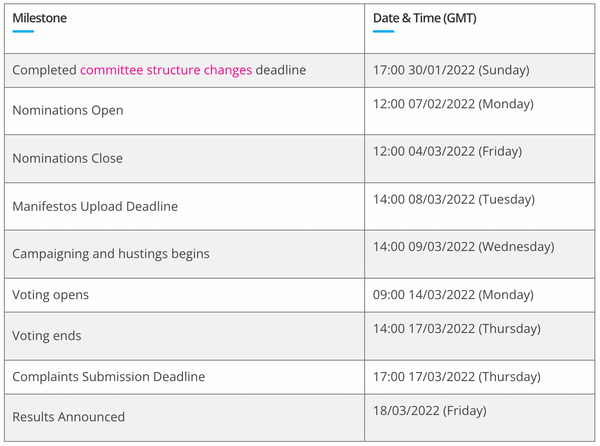National Student Survey launched amid controversy
The National Student Survey (NSS) has launched at Imperial College and will run until the end of April 2022 for all final year students.

The National Student Survey (NSS) has launched at Imperial College and will run until the end of April 2022 for all final year students.
Last year’s NSS garnered Imperial nation-wide acclaim, with a record-breaking result of 84%. This is 3% higher than the previous year and came in a year where the score for almost every other university went down.
Imperial College says that the survey will ask students about “areas such as academic support, learning resources and assessment and feedback”.
Vice Provost (Education and Student Experience) Emma McCoy said that she encourages all final year students to take the survey, and that “It is an extremely important barometer for the College of the things that we are getting right, but also where we can improve, and we take the results very seriously. By taking part in the Survey you are shaping the Imperial experience for future students just as those who came before you shaped your own experience”.
She added “Our plans for the future have adapted to, and in some cases been improved by the pandemic, but they are no less ambitious. These improvements range from campus developments, including new multi-disciplinary laboratories, lecture theatre conversions and next-generation AV, to improved student support such as an expanded Mental Health Advice service.”
Imperial College increased its funding for mental health services from £932,772 in the 2019/20 academic year, to £959,651 in the 2020/21 academic year. This represents a 2.9% increase. The College have clarified that McCoy’s comments refer to future spending, and that four new roles in the Mental Health Advice service have recently been filled.
The total mental health spend in the 2018/19 academic year by the University of Bristol, whose student population is of a similar size to Imperial’s, was £1,458,544. This is 69% higher than the amount Imperial College spent during the same time frame. Imperial College’s revenue was 58% greater than that of the University of Bristol in the 2019/20 academic year.
Last year’s record-breaking NSS results at Imperial were largely put down to success in the transition to remote learning. The NSS website specifies that “Questions about students’ experience of higher education during the coronavirus pandemic will not be asked in the 2022 survey”. Given this, it is unclear whether Imperial’s high score will be maintained.
The University of Oxford’s student union (SU) has announced a boycott of the NSS for the third year in a row. They say this is because “the data gathered from the NSS is used to rank universities against each other, which can create a competitive market of education” and that this “may encourage universities to stream money into quick fixes simply to drive up student satisfaction on paper”.
Oxford SU adds that “questions on the NSS reflect a narrow view of what higher education and student experience should look like, rather than the more holistic and structural understanding Oxford SU advocates for, which includes an emphasis on equality and welfare as well as academics”.
There are no mandatory welfare-based questions in the 2022 NSS. There are optional questions that can be selected from a ‘question bank’ by the HE provider. If the provider does not select these questions then a student at that institution is not given the option to answer them. Of the 54 questions in the question bank, four relate to welfare and student safety.
Other SUs to boycott the NSS include University of Cambridge, University of Bath and Kings College London. The National Union of Students called for a boycott of the NSS in 2016.
Imperial College Union’s Council voted on whether to join the NSS boycott in the 2016/17 academic year, but this idea was voted down.
The Union’s Deputy President (Education), Daniel Lo, said “I am aware that a number of students’ unions have decided to boycott the National Student’s Survey (NSS). I acknowledge their concerns, and I agree that the NSS questions are not comprehensive enough to fully assess student’s academic experiences at the College, or their ability to access support. However, the scoring and comments are valuable for both departments and ICU in evaluating their teaching success and lobbying for improvements respectively. Our view is that we should leave students to decide whether to participate or not”.









